According to recent statistics, 87% of B2B marketers have identified demand generation as their primary focus. This means making people want to buy what they’re selling. To do this, they often use something called marketing automation, which is using technology to make marketing easier and better. Marketing automation has changed how businesses work. It can help you reach your target audience more efficiently, save time and resources, and ultimately achieve better results. This guide will provide valuable insights and tips and help you understand the landscape of B2B marketing automation to take your marketing strategy to new heights.
Know More About Marketing Strategy
- Best retail marketing strategies for 2024
- 5 Growth Marketing Strategies for 2024
- 4 Essential Insights for Developing Your Brand Marketing Strategy
- 5 Ways Hyperlocal Brands Can Add Newspaper Ads to their Local Marketing Strategies
1. Introduction To B2B Marketing Automation
B2B marketing automation is a transformative approach that leverages software and technology to optimize operations, improve lead quality, and boost conversions. By implementing sophisticated strategies such as lead generation, lead nurturing, email marketing, social media automation, and seamless CRM integration, companies can significantly enhance their performance. Research indicates that companies with effective demand-generation strategies can generate 50% more leads at a 33% lower cost, underscoring the profound impact of strategic automation in modern business environments.
2. How To Overcome Challenges in B2B Marketing Automation?
B2B marketing automation comes with its own set of challenges that businesses must overcome to maximise its benefits. Here is a list of commonly faced hurdles in B2B marketing departments.
Integration Complexity
One of the primary challenges in B2B marketing automation is the complexity of integrating different systems and platforms. Many businesses use a variety of tools and software for different aspects of their marketing efforts, such as CRM systems, email marketing platforms, and analytics tools. Ensuring seamless integration between these systems can be challenging and may require technical expertise and resources.
To overcome this challenge, businesses should invest in platforms that offer robust integration capabilities and provide support for connecting with a wide range of third-party applications. Additionally, working with experienced consultants or service providers can help streamline the integration process and ensure that all systems work together seamlessly.
Maintenance of Data Quality and Management
Effective marketing automation relies heavily on accurate and reliable data. However, maintaining data quality can be a significant challenge for B2B marketers, especially when dealing with large volumes of information from multiple sources. Data may be incomplete, outdated, or inconsistent, leading to errors in automated campaigns and inaccurate insights.
To address this challenge, businesses should implement data management systems that follow best practices, such as regular data cleansing and validation procedures. Additionally, investing in tools and technology for data enrichment and normalisation can help ensure that data remains accurate and up-to-date over time. Collaborating closely with sales and IT teams can also help align data management efforts across the organisation.
Content Personalization at Scale
Personalization is key to successful B2B marketing automation, as it allows businesses to deliver relevant and targeted content to their audience. However, creating personalized content at scale can be challenging, particularly when catering to diverse customer segments with varying interests and preferences.
To overcome this challenge, businesses should leverage data insights to segment their audience effectively and tailor content accordingly. This may involve using demographic, behavioural, or firmographic data to create personalised messaging and offers. Additionally, investing in content marketing automation tools and dynamic content creation platforms can help streamline the process of creating and delivering personalized content to different segments of the audience.
Alignment between Sales and Marketing
Effective B2B marketing automation requires close alignment between marketing and sales teams. However, achieving this alignment can be challenging due to differences in goals, processes, and priorities between the two departments.
To address this challenge, businesses should foster open communication and collaboration between marketing and sales teams, ensuring that both departments are working towards common objectives. Implementing shared KPIs and metrics can help align goals and incentivize collaboration, while regular meetings and check-ins can facilitate ongoing communication and feedback. Additionally, implementing a unified CRM system that is accessible to both marketing and sales teams can help ensure that all customer interactions are captured and tracked effectively, enabling seamless handoffs between the two departments.
Key Marketing Automation Strategies for B2B Revenue Leaders
CRM Integration
In recent years, marketing automation has surged as the fastest-growing segment in CRM. The market is set to reach USD 9.5 billion by 2027 from USD 5.2 billion in 2022, with a CAGR of 12.8%. CRM integration connects CRM systems with other tools, facilitating seamless data sharing and improving efficiency. For instance, a manufacturing company integrating its CRM with email marketing can automatically log and sync communication history, empowering sales teams with comprehensive client insights to enhance relationships and streamline processes.
Segmentation and Personalization
In the Indian scenario, personalization is crucial. Even the basic segmentation capabilities that a CRM provides can result in up to a 25% increase in engagement among prospects and existing customers.

Lead Scoring
Lead scoring is a method used by businesses to evaluate and rank potential customers based on their likelihood to convert into actual paying customers. This process assigns numerical values to leads based on various criteria such as demographics, behaviour, engagement with marketing materials, and level of interest. By assigning scores to leads, businesses can prioritise their efforts and focus on those prospects that are most likely to result in a sale.
For example, In a B2B setting, a software company utilizes lead scoring to evaluate the potential of various companies interested in their product. This involves assigning higher scores to leads from industries with high demand for their software, those who have made multiple visits to their website, downloaded product demos, or engaged with their content on social media. These actions are meticulously tracked through marketing automation, which records and adjusts lead scores accordingly. Leads with elevated scores are then funnelled to the sales team for intensified follow-up, thereby enhancing conversion rates and optimizing the sales process efficiency. Like when a lead from a high-demand industry visits the website or downloads a product demo, the marketing automation system registers these actions and adjusts the lead score accordingly.
Email Marketing Automation
Email marketing automation is the use of software tools to streamline and automate the process of sending targeted emails to leads or customers based on predefined triggers or actions. This approach allows businesses to deliver personalized and timely messages to their audience, nurturing leads, and driving engagement throughout the buyer’s journey without requiring manual intervention for each email.
Social Media Automation
Social media marketing automation refers to the use of tools and software to schedule, manage, and automate various tasks related to social media. These tasks may include posting content, engaging with followers by replying to comments, analysing performance metrics, and more. By automating these processes, businesses can save time and resources while maintaining a consistent and active presence on social media platforms.
Tips for Implementing Marketing Automation
A. Start with Clear Objectives
Define specific goals and objectives for your B2B marketing automation efforts, such as increasing lead generation, improving lead nurturing, or enhancing customer retention. Without clear objectives, your efforts may lack direction and may not deliver the desired results. Defining specific goals helps in guiding your brand marketing strategy and makes it easier to measure success. Whether you want to grow your client base, build stronger relationships with existing customers, or enhance your brand’s visibility, having clear objectives ensures that every step you take contributes to achieving these goals. It also helps in evaluating the effectiveness of your marketing automation efforts and making necessary adjustments. By setting clear goals, you provide a roadmap for your marketing strategy, making it easier to focus your resources and efforts on activities that drive meaningful results.
B. Conduct Thorough Research
Before selecting a marketing automation platform, conduct thorough research to understand what your business needs, how much you can spend, and what options are out there. Look for platforms that have strong features, are easy to integrate with your current systems, and offer great customer support. By leading your thoughts in this way, you set yourself up for success in your marketing efforts which can help you in demand generation. It’s like laying a strong foundation for a building – if you choose the right tools and technologies now, your marketing strategy will have a solid base to grow and thrive. So, take the time to research and make an informed decision. It will be helpful for your business in the long run.
C. Build a Strong Foundation
Solid brand management is crucial for successful marketing automation. To start, focus on ensuring your data is accurate, clean, and complete. This means making sure the information you have about your customers is correct and up-to-date. Investing in tools and processes for data management is key. These tools help keep your data organised and reliable over time. With a well-maintained database, you can target your audience more effectively and personalise your communication with them. This is important for running automated campaigns smoothly across various marketing platforms. Plus, it helps you gain valuable insights to improve your strategies. By prioritising brand management in your marketing automation efforts, you set yourself up for long-term success in a competitive market.
D. Start Small and Scale Gradually
Begin with small-scale marketing automation initiatives and gradually expand as you gain experience and confidence with the platform. Start by automating simple tasks such as email drip campaigns or lead scoring, and then gradually introduce more complex automation workflows over time.
E. Monitor and Measure Performance
Regularly monitor and measure the performance of your automated campaigns using relevant metrics and key performance indicators (KPIs). Use analytics tools and dashboards provided by your marketing automation platform to track metrics such as conversion rates, engagement levels, and ROI.
In conclusion, mastering automation in B2B marketing is not just an option; it’s become a necessity. With demand generation taking centre stage for 87% of B2B marketers, the adoption of marketing automation has become imperative for businesses aiming to stay ahead. By leveraging technology to streamline operations, enhance lead quality, and optimise conversions, companies can achieve remarkable results.
However, B2B marketing automation comes with its own set of challenges, from integration complexities to maintaining data quality and achieving alignment between sales and marketing teams. Nonetheless, by implementing key strategies such as CRM integration, segmentation, lead scoring, email marketing automation, and social media automation, businesses can overcome these hurdles and unlock new opportunities for growth. It’s crucial to start with clear objectives, conduct thorough research, build a strong foundation, and then scale gradually while continuously monitoring and measuring performance. With dedication and strategic implementation, mastering automation in marketing can propel businesses to new heights of success in the dynamic B2B landscape.
Frequently Asked Questions (FAQs)
Q1. What is marketing automation, and why is it important in today’s digital age?
A1. In today’s digital age, marketing automation involves using software and technology to streamline processes, enhance lead quality, and drive conversions. Businesses must leverage automation effectively to stay ahead in the competitive market, reach target audiences more efficiently, and ultimately achieve better results.
Q2. How does marketing automation benefit Indian B2B marketers?
A2. Marketing automation offers numerous benefits for Indian B2B marketers, including increased efficiency and time savings, enhanced lead quality and customer segmentation, and improved ROI and revenue growth. By leveraging automation tools, Indian B2B companies can streamline tasks, reach their target audience more effectively, and achieve measurable returns on investment.
Q3. What are some key components of B2B marketing automation?
A3. Key components of B2B marketing automation include lead generation and nurturing, email marketing automation, social media automation, and CRM integration. These components work together to streamline processes, enhance lead quality, and drive conversions for Indian B2B marketers.
Q4. Can you provide examples of popular automation tools used by Indian B2B marketers?
A4. Popular automation tools used by Indian B2B marketers include Zoho CRM, LeadSquared, MailerLite, and HubSpot. These tools offer various features and functionalities to help streamline marketing processes, enhance lead quality, and drive conversions for Indian B2B companies.
Q5. How can Indian B2B marketers overcome challenges in marketing automation?
A5. Indian B2B marketers can overcome challenges in marketing automation by addressing common misconceptions and concerns, providing solutions to integration issues, and balancing automation with the human touch. By investing in comprehensive training programs, fostering collaboration between marketing and IT teams, and leveraging automation tools effectively, Indian B2B companies can maximise the benefits of marketing automation and achieve success in the dynamic marketplace.
Q6. What are some future trends in Indian B2B marketing automation?
A6. Future trends in Indian B2B marketing automation include advancements in AI and machine learning, integration of emerging technologies such as blockchain and augmented reality, and predictions for increased personalization, hyper-targeted campaigns, and seamless integration between sales and marketing systems. These trends promise to further revolutionize the landscape and pave the way for even more innovative and effective marketing strategies in the Indian B2B sector.
Ready to take your brand to the next level? Connect with us today to explore how HT Media can amplify your presence across our diverse portfolio of 25+ brands and properties. Let's turn your brand vision into reality!

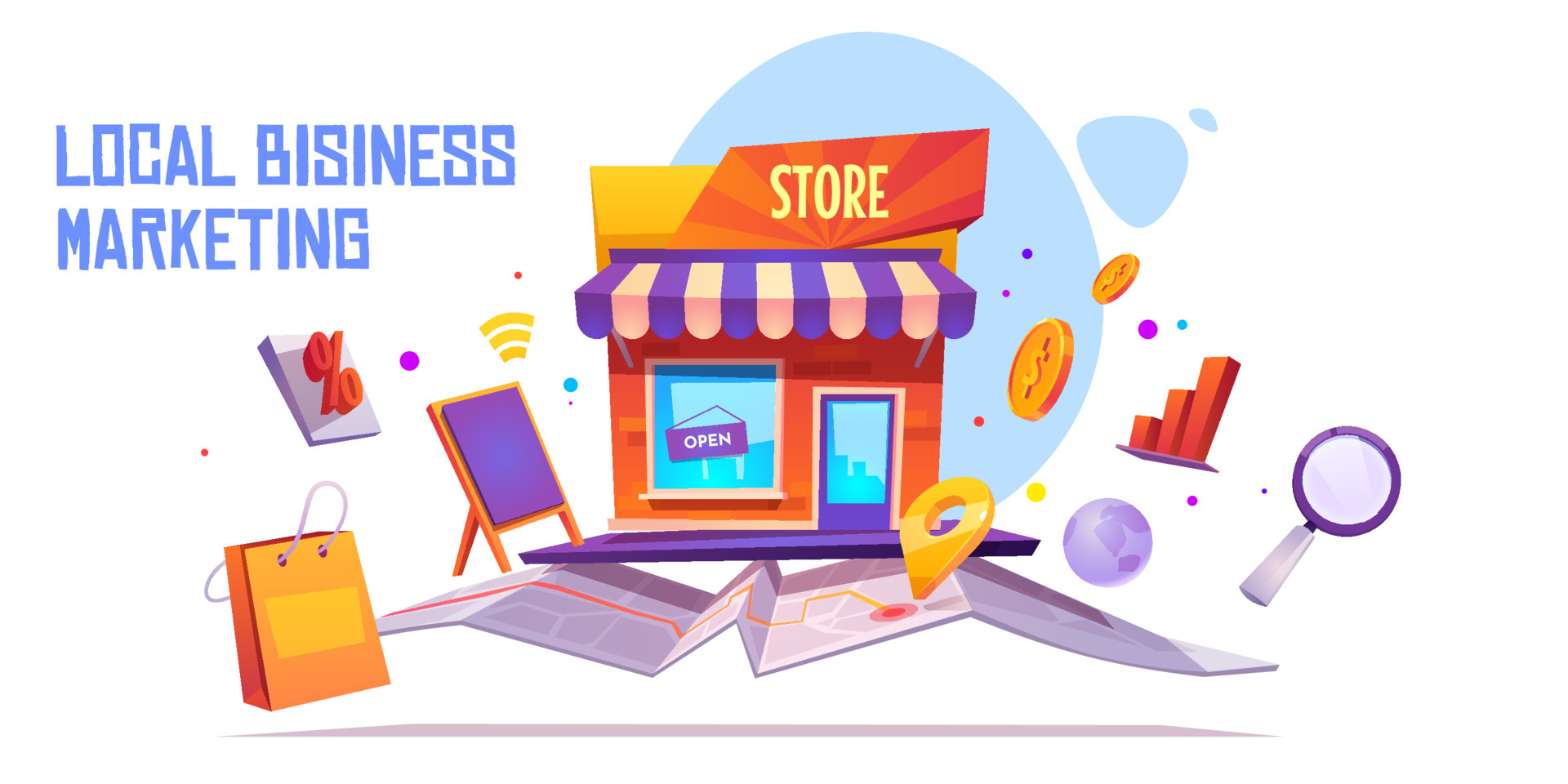

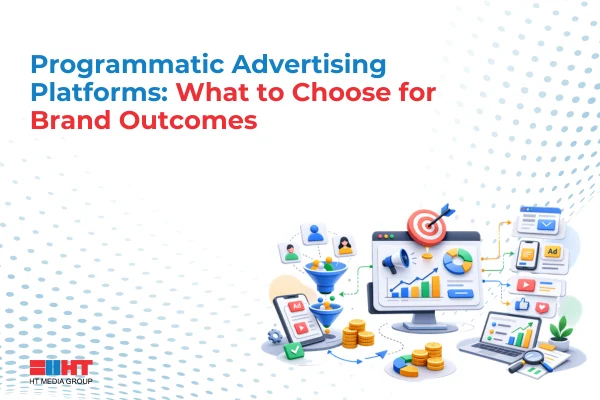
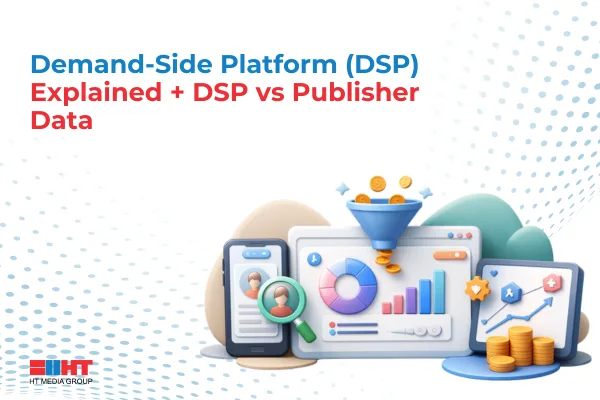




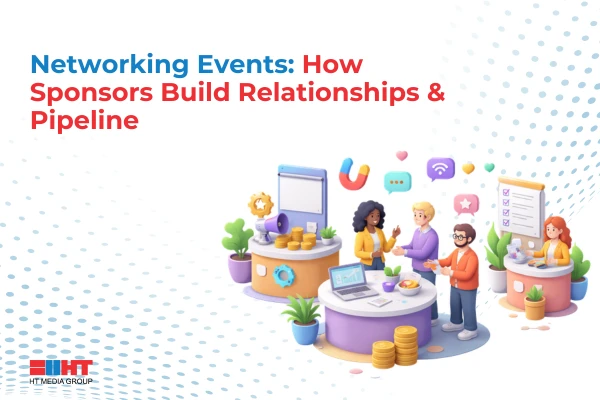

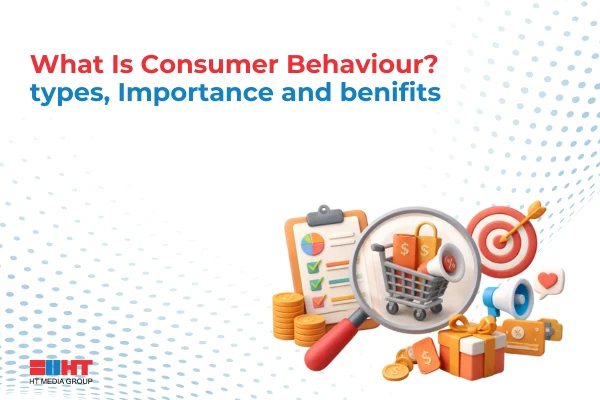
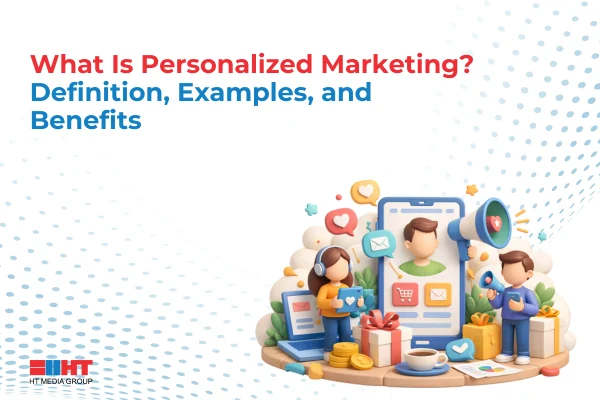
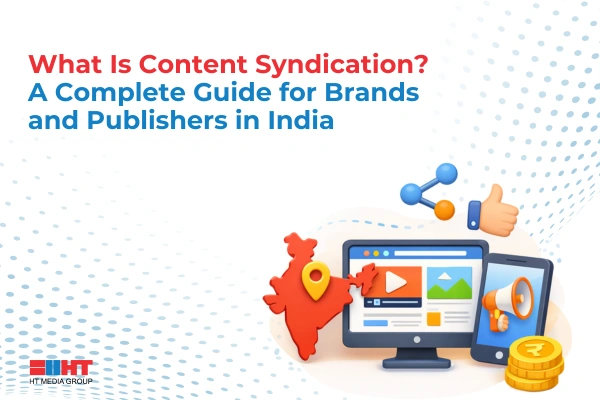
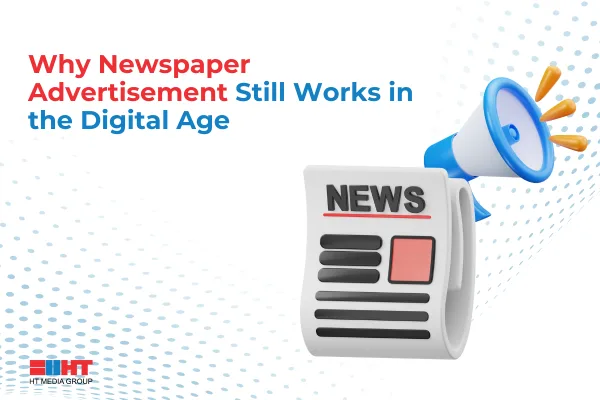

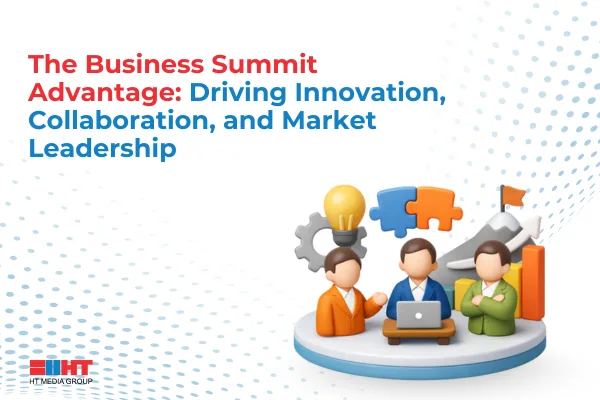


Comment